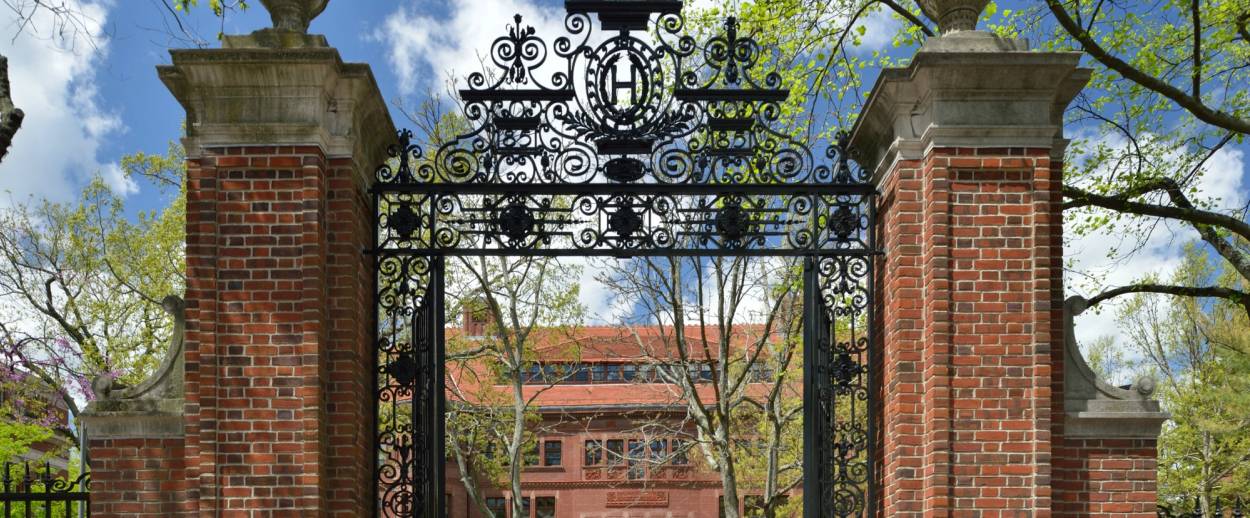Harvard is Dumber Than Twitter
The day the Ivy League went full-on social media




Kyle Kashuv is a survivor of the mass shooting at Florida’s Stoneman Douglas high school. Unlike several of his classmates, who became high profile advocates of gun control, Kashuv, who is conservative, held on to his faith in the Second Amendment. His activism earned him a trip to DC and a meeting with President Trump; it also marked him as a target.
Before too long, our national media, with little better to do, dug into Kashuv’s private exchanges with his friends, online conversations conducted in closed groups several years ago, when Kashuv was 16. In them, Kashuv uses offensive language, including the N word. When the transcripts came to light, Kashuv immediately apologized, saying that he was merely trying to shock his friends with some obscene provocations. To that end, Kashuv, who is Jewish and whose parents are immigrants from Israel, also typed incendiary statements about Jews. He apologized for those, too.
Harvard was having none of it. The university, having accepted Kashuv on the merit of his grades and commitment to civic service, sent him a letter earlier this month rescinding his admittance. You can read the whole saga on Kashuv’s Twitter thread, complete with the relevant documents. You can also read the cornucopia of think pieces—some supporting Kashuv, some Harvard—that have clogged the web since Kashuv’s rejection became known. No matter which side you take, one fact is impossible to shake off: America’s premiere educational institution has just declared that, moving forward, it will be in the business of scrutinizing the personal correspondence of all applicants to assure that only those who hold correct views are allowed in.
Just what are the correct views? Unlike the other criteria taken into consideration when evaluating a candidate for admission, the university has made no effort to clearly communicate the moral standard by which it now judges young men and women. Even if you accept that it is somehow Harvard’s business to parse something offensive a kid wrote in a Google doc to his friends some years ago, long before he was catapulted, through circumstances beyond his control, into national prominence, consider the following questions.
Would Harvard, say, bar a budding anti-Zionist activist who tweeted that the Jewish lobby controls America with its dirty money? Would it punish a young African American kid who, emulating his favorite rappers, used language that is hurtful to women and gays? Would it censor only teenagers, or do offenses committed at 11 or 12 also count? Or would it reserve its harshest judgments for the wrong kind of people—retrograde whites, especially men, including Jews, certainly, but not members of other minority groups, except for Asians, against whom Harvard already openly discriminates?
These questions make some sense when applied to social media, our unremitting court of public opinion where everyone is always guilty and redemption is never on the horizon. This week, Harvard proved itself even dumber than Twitter, replacing the golden standard of education—a process of trial and error, guided by empathy and care—with the mean-spiritedness, narrow-mindedness, and mob mentality of the social network.
It’s really not much of an exaggeration, at this point, to argue that Harvard’s mission is apparently no longer the development of young minds but rather the surveillance of young souls from childhood on, in order to certify an immaculate record of political correctness. The main model that springs to mind for this kind of secular institutional rage for the moral perfection of children is the early Soviet Union, where childhood indiscretions or undesirable class or ethnic origins could cost budding scholars their shot at a Party badge. The Sovietization of what passes for “higher education” in 21st century America is sad. It also proves Karl Marx’s famous quip about history unfurling first as tragedy and then as farce.
Never mind that Harvard could, if it truly cared about social justice, take just a small portion of its $38.3 billion endowment and, say, set up hundreds of decent, well-functioning schools where Harvard graduates could teach the urban and rural poor of America basic skills like reading and math. And never mind that the university continues to admit mostly the sons and daughters of the very wealthy, regardless of the color of their skin. But the same university that reacted so harshly to Kashuv’s transgression is also the one that just a month ago summarily dismissed perhaps the most directly influential senior African American on campus—Ronald Sullivan, the famous criminal lawyer and the master of Winthrop House. His crime? Representing Harvey Weinstein in court.
Harvard believes that there are crimes that simply cannot be forgiven. For adolescents, that means using vile language in private conversation. For adults, that means defending people accused of crimes in the press in an actual courtroom, as the law demands. Now think for a moment about the values that Harvard is inculcating in its young charges. The moral is simple: Don’t let your children apply there, because sooner or later the result will be tragic—for them, for you, and for America.
Liel Leibovitz is editor-at-large for Tablet Magazine and a host of its weekly culture podcast Unorthodox and daily Talmud podcast Take One. He is the editor of Zionism: The Tablet Guide.